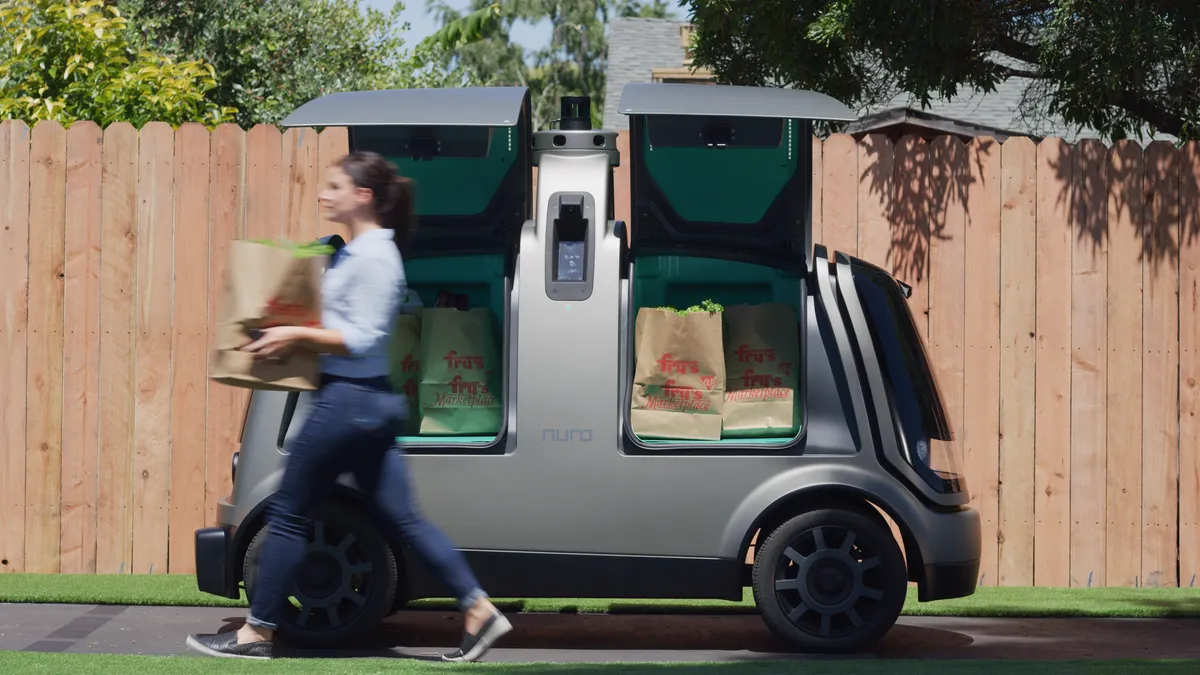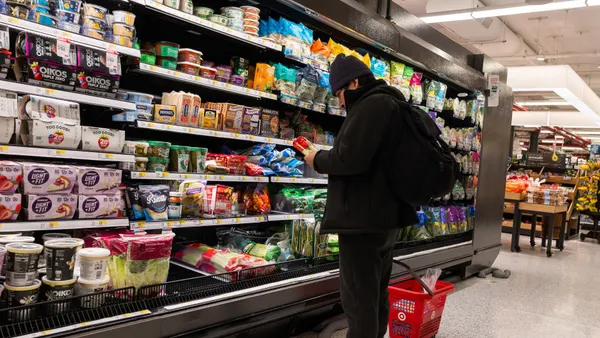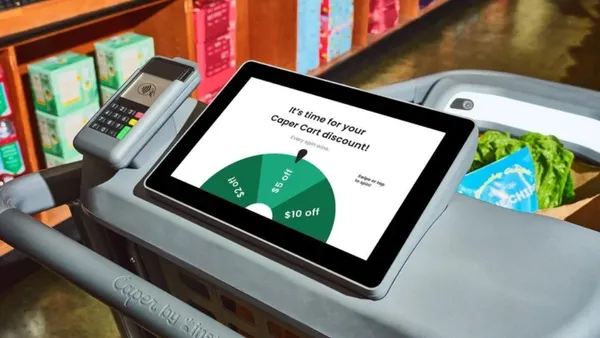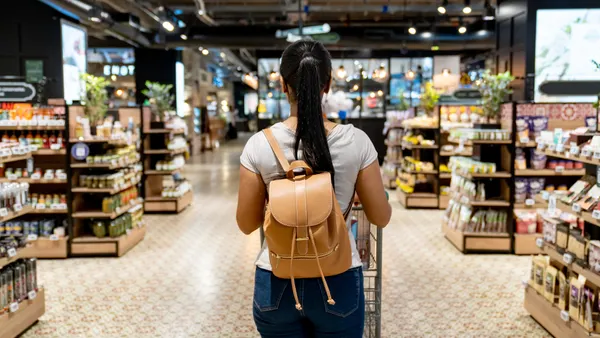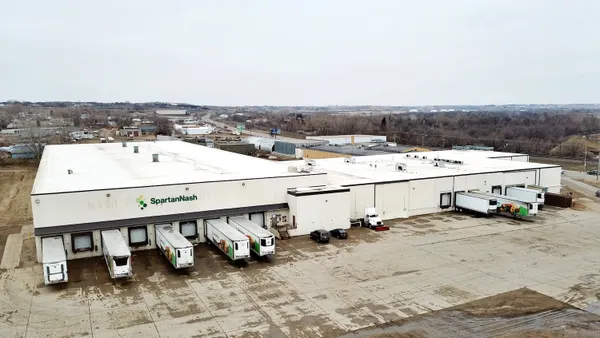Dive Brief:
- Robotics company Nuro, which launched a driverless delivery test with Kroger last summer in Arizona, announced it raised $940 million in financing from the SoftBank Vision Fund, according to a company release. So far, Nuro has raised more than $1 billion from investors.
- Nuro says it will use the new financing to expand its delivery service to new areas, create new partnerships, scale its fleet and further develop its self-driving technology.
- In December, after completing more than a thousand deliveries, Nuro and Kroger transitioned to fully autonomous vehicles for their delivery pilot from a Fry's Food store in Scottsdale, Ariz.
Dive Insight:
Although driverless grocery delivery is still in the early stages, Nuro’s most recent round of funding is evidence that investors are seeing potential in self-driving vehicles. However, it's still unclear at this point how widely the technology can scale.
Nuro is one of several companies testing grocery delivery right now, with Udelv, AutoX and Ford Motor Co. among others partnering with retailers large and small. Walmart, most notably, is running multiple driverless vehicle tests, including one in Arizona that ferries customers to the store to pick up their online orders. Last month, Stop & Shop announced it would put "self-driving grocery stores" on the streets of Boston, though there are questions over whether the retailer and technology partner Robomart will receive — or even need — approval from city officials.
Nuro's R1 vehicle, which is currently delivering Kroger groceries in Scottsdale, is unique in its delivery-focused design. It’s optimized for carrying goods — an important feature for grocers such as Kroger that have eggs and other fresh goods going out — with capacity for up to 20 grocery bags. It’s also built for customer interaction, with wing doors that open after a customer has entered a special app from their phone. Nuro founder Dave Ferguson also has noted the R1’s delivery-focused build makes it easier to scale.
According to The Wall Street Journal, Nuro has built six R1 vehicles and plans to build more with its latest funding round. The company is also testing new technology on dozens of standard vehicles, and is talking to auto makers about potential partnerships.
Regulatory hurdles stand in the way of driverless grocery delivery, with requirements varying by location as cities and states work to evaluate the technology. Customers may not warm up to the technology. A recent San Francisco Chronicle report found that while customers like having their orders brought to their home, they missed having goods delivered right to their door.
Still, autonomous delivery promises to cut down on delivery fees and could work well in densely populated suburban markets. The underlying technology will also evolve, and as it does so companies like Nuro will expand further in grocery and other retail channels. Professional services firm KPMG estimates that driverless delivery vehicles could log as many as 78 million miles a year by 2040.



